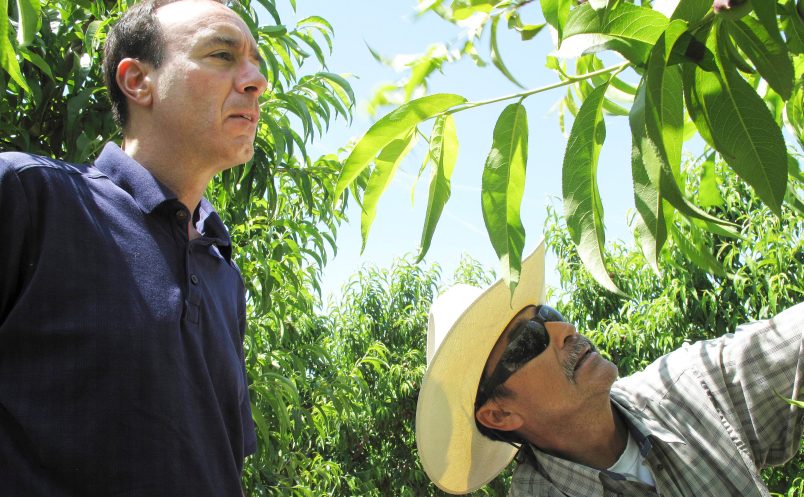SAN FRANCISCO (AP) — An upcoming ruling by California’s highest court in a legal battle between the union launched by labor leader Cesar Chavez and one of the nation’s largest fruit farms could dramatically reduce the power of organized farm labor in the state.
The California Supreme Court was expected to decide Monday whether a law allowing the state to order unions and farming companies to reach binding contracts is unconstitutional.
Labor activists say the mandatory mediation and conciliation law is key to helping farm workers improve working conditions by preventing employers from stalling on contract talks with unions to avoid a labor deal. Under the law, a mediator can impose a labor contract on the employer that sets wages and other working conditions.
Opponents say it’s government overreach that deprives agricultural employers and workers of a say over the terms of employment.
The state Supreme Court’s ruling will come in a lawsuit pitting Gerawan Farming, which hires thousands of workers for its nectarine, peach and plum farms, against the United Farm Workers of America.
The 2002 state law at issue allows the California Agricultural Labor Relations Board to order mediation to achieve a labor contract for farm workers and gives mediators the authority to set the terms of the agreement.
Unions can seek mediation 90 days after demanding to bargain on behalf of workers — even if the vote to unionize occurred decades earlier in some cases.
“The argument when it was enacted was that workers would get all fired up about having a union to represent them and they would vote for the union but then the employer would delay and the workers would lose their enthusiasm,” said Philip Martin, a farm labor expert at the University of California, Davis.
In court documents filed with the state Supreme Court, the UFW says a previous law had failed to achieve the state’s goal of providing millions of farm workers with the right to bargain collectively with employers.
As of 2002, less than half of farm employers whose workers voted to join a union since 1975 had agreed to a labor contract, according to the UFW.
UFW won the right to represent Gerawan workers in 1990, but the two sides did not agree to a contract. At the union’s request, the state Agricultural Relations Board in 2013 ordered Gerawan and the UFW to enter into binding mediation, and the mediator eventually crafted a contract that was approved by the board.
“This is literally government stepping in and determining the wages and working conditions of a business and enforcing it on the employer and employees without any say whatsoever,” said Dan Gerawan, who runs Gerawan Farming in California’s Central Valley — one of the nation’s most productive farming regions.
A state appeals court ruled 3-0 two years ago that the mediation and conciliation law was unconstitutional because it failed to provide mediators with any policy goals or standards and would result in a different set of rules for different employers.
Martin said 50 to 100 other farms may find themselves in the same position as Gerawan.






